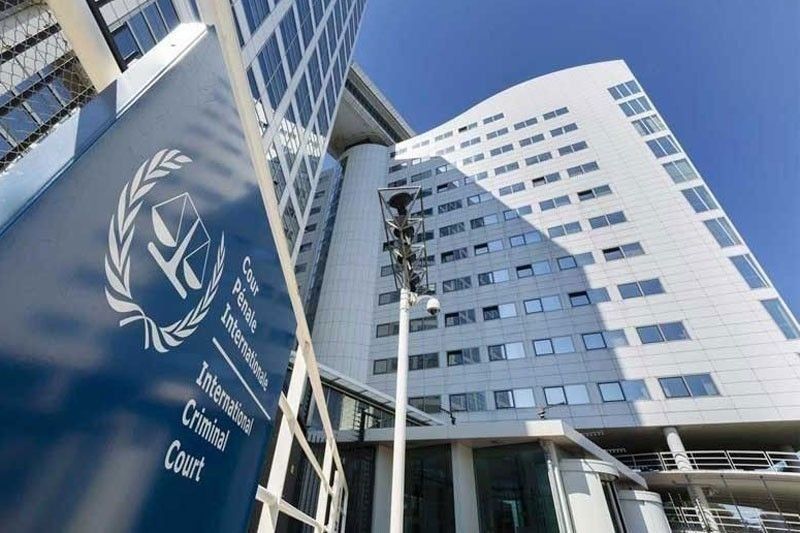How did African nations pull back from plans to quit ICC?

MANILA, Philippines — The oral arguments on the petitions challenging the Duterte administration-initiated pullout from the Rome Statute of the International Criminal Court will finally proceed on August 28.
This, after the oral arguments have been moved thrice.
Six opposition senators—Sens. Francis Pangilinan, Franklin Drilon, Bam Aquino, Leila de Lima, Risa Hontiveros and Antonio Trillanes IV—in a petition filed last May sought issuance of an order compelling the executive department to cancel, revoke or withdraw its instrument of withdrawal received by the United Nations secretary general last March.
A similar petition filed by the Philippine Coalition for the International Criminal Court led by former Commission on Human Rights chair Loretta Rosales was consolidated with the case.
The Philippines under Duterte was the fourth country to have announced withdrawal from the international tribunal.
This came a month after the ICC opened a preliminary examination into the alleged crimes against humanity of Duterte and his men.
Burundi became the first country to leave the Hague-based body last October 2017. It cited the oft repeated claim that ICC is biased against African states while turning a blind eye to more politically powerful leaders elsewhere.
But the preliminary investigation launched by the prosecutor in April 2016 into possible crimes against humanity in the central African nation would continue as it was started when Burundi was still a member.
Burundi’s snub triggered African countries such as South Africa and Gambia to follow suit. But both nations later reversed their decisions and have since rejoined ICC.
Here’s how the two African nations pulled back from their plans to quit ICC:
Gambia
Gambia’s decision to rejoin the ICC was made possible by the country’s new government, overturning the previous administration’s move to withdraw from the tribunal.
Former president Yahya Jammeh announced in October 2016 that he would pull the tiny West African nation out of the ICC, accusing it of ignoring alleged war crimes of Western nations and seeking only to prosecute Africans.
But President Adama Barrow in February 2017 announced the reversal of Jammeh’s decision in a bid to restore human rights and resuscitate international ties cut off by his predecessor.
“As a new government that has committed itself to the promotion of human rights… we reaffirm The Gambia’s commitment to the principles enshrined in the Rome Statute of the International Criminal Court,” a statement read.
South Africa
In October 2016, the South African government under former president Jacob Zuma notified the United Nations of its intention to withdraw from the Rome Statute of the ICC.
But South African opposition Democratic Alliance challenged the nation’s plan to pull out from ICC in court.
In February 2017, a South African High Court blocked the attempt of the government to withdraw from ICC, saying the decision by Zuma’s cabinet was premature and procedurally irrational.
The high court added that the government could not make a decision without the approval of Parliament.
“The national executive requires prior parliamentary approval to bind South Africa to an international agreement, there is no cogent reason why the withdrawal from such agreement should be different. The national executive did not have the power to deliver the notice of withdrawal without obtaining prior parliamentary approval,” the court said.
What happened in South Africa is playing out in the Philippines today as minority senators questioned executive department’s withdrawal from the ICC before the Supreme Court.
The opposition lawmakers heavily cited the case of South Africa when they asked the high court to declare as invalid the country’s withdrawal of its ratification of the Rome Statute due to lack of concurrence from the Senate.
“Given that the Instrument of Withdrawal received by the secretary-general of the United Nations on March 17, 2018 is inconsistent with the Philippine Constitution, the Honorable Court must order the executive department to carry out its cancellation, revocation or withdrawal, similar to the case of South Africa,” the opposition senators said.
They argued Rome Statue is a treaty validly entered into by the Philippines and which has the same status as a law enacted by Congress. Because of this, the withdrawal from the Rome Statute needs the concurrence of at least two-thirds of all members of the Senate.
“The executive cannot abrogate or repeal a law. In the same vein, the executive cannot unilaterally withdraw from a treaty or international agreement because such withdrawal is equivalent to a repeal of a law,” the petitioners said.
Last year, 14 senators filed a resolution expressing the sense that the upper chamber should have a say on when a treaty or international agreement concurred in by the Senate is terminated.
But the resolution’s main author, Sen. Minority Leader Franklin Drilon, said it has yet to be adopted and is non-binding. Sen. Manny Pacquiao, an ally of the president, blocked the measure.
READ: Can the Philippines leave the ICC without Senate concurrence?
- Latest
- Trending





























